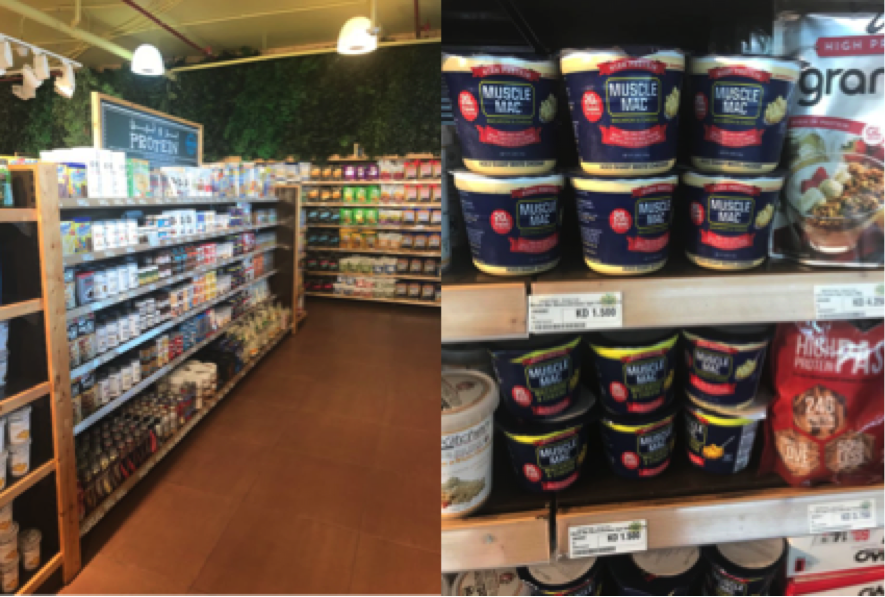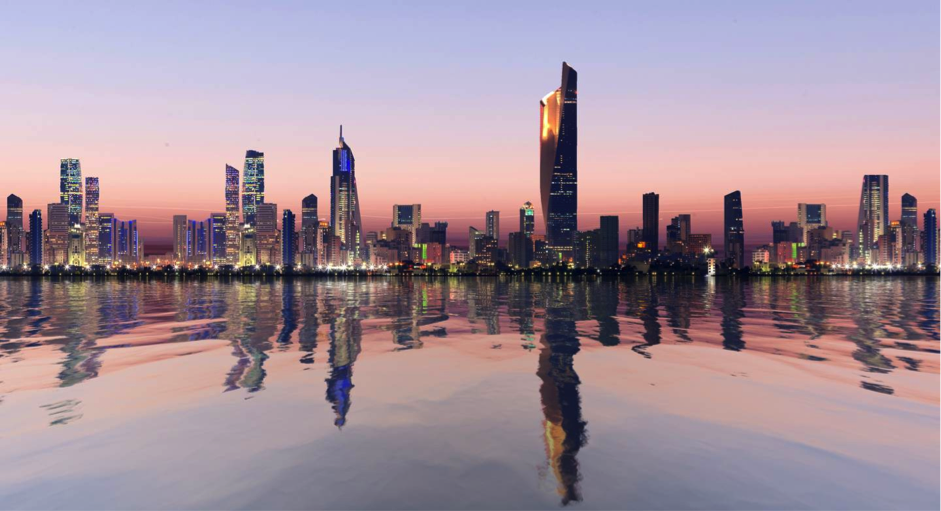Kuwait is a country that you seriously should consider if you want to export food and drink products. The country has a high level of openness to global trade, an evolving financial market and low corporate tax rates. Kuwait offers a mix of modern and traditional customs. The local population is young and love to consume. They are keen on foreign products, especially western brands with a high popularity for the British brands. Kuwait wants to reduce the dependence with oil and is willing to invest more and more in the food and drink sector, in this perspective, the market could be full of opportunities for your food and drink brand!
Health consciousness is growing in Kuwait
Contrary to common beliefs, the U.S. is not the country with the highest obesity rate and surprisingly, as it is reported by Euromonitor, Kuwait had a higher percentage of obesity than the U.S. Indeed, Kuwait has various health problems regarding obesity, hypertension, sleep apnea, cancer and heart diseases. In fact, close inspection reveals that Kuwaitis have a clear appetite for American fast-foods. They represent one of the only form of entertainments to them and are associated with going out in Gulf countries. These restaurants are like the place where to be seen. However, faced with such a situation, many people starting to realize that sport and dieting is also something important and how bad eating habits can eventually affect their health. The demand for healthier meals in the restaurant is rising and now it is commonplace to see ‘low fat’ or ‘fitness’ menus.
Educating people, especially children from a very young age, is something that is starting to be taken into account. Some private schools have even introduced the ‘healthy snack’ which consists in providing to every child at least one fruit or vegetable portion everyday. Also, Kuwaiti women are now trying to learn more about cooking healthier, some of them even attend courses dedicated to learn how to cook better and healthier.
In addition to adopting improved eating habits, Kuwaitis are really determined to do more sport and be more active. Zumba, CrossFit or Yoga courses are now available and becoming increasingly successful.
Unlike Qatar, in Kuwait sport nutrition and especially protein consumption is a much more developed category. There are entire aisles in stores dedicated to protein in which you can find all kind of products such as bars, pasta, crackers, etc as well as the usual bars and snacks.

The food and drink sector
Kuwait is taking the opportunity to diversify its economy through the food and beverage industry. The main goal of the country is to become the World’s food capital by 2030, an ambitious but conceivable goal. Having such a title would give a great visibility to the country and could attract investors and increase tourism. This goal is based on the great chefs the country has and the local food. With the high levels of urbanisation and a business-friendly climate, the opportunities in for food and drink products is now clearly rising, especially with genuine and quality products. A large high-spending population provides the spark for original ideas and Kuwaitis consumers are hungry for new products and innovative cuisine.
Despite the appetite and ambitions of the economy, Kuwait relies upon and imports the vast majority of its food and beverage products. As a nation the population is keen on British products, especially well known iconic brands such as Cadburys which is associates as a guarantee of quality in their opinion. As such it is common to see a whole British food department in various supermarkets chains, particularly Saveco who is importing large amounts of Tesco branded produce.
The competitive landscape
Kuwait’s food retail share is the highest among the Gulf countries. Even though the level of urbanisation is quite important, the food retail market in Kuwait is quite fragmented, with a large number of stand-alone stores in malls. Among the large retailers there is The Sultan Center, Saveco, Kuwaiti Union of Cooperative Societies, Carrefour, City Centre and Geant Casino. We can also notice the presence of Lulu Hypermarket with approximately half a dozen stores which is gaining in popularity amongst some consumers due to the large variety of produce that can be found there.

Trolley, a chain of convenience stores found in petrol stations is also worth noting. . They have 25 outlets inside petrol stations, 4 inside universities and 2 inside gyms at present, although this is set to rise to over 100 outlets in the next two years.
The high GDP per capita in Kuwait also means that there is a large presence of luxury retail. Therefore there are several high-end malls with luxury brands such as the Avenues Mall in which Prada opened in 2013 its second store in Kuwait.

Not forgetting traditions and local customs…
Having said that the souk remains a big part of Kuwait’s heritage and is still maintaining its share in the market with various offerings.
When it comes to the the food retail sector itself is mostly controlled by the government’s Union of Cooperative Societies (UCCS) which consists in some grocery and convenience stores, supermarkets and hypermarkets. All of this means that the presence of private players in the country is limited and the Coops have an enviable 70% of the entire market share in Kuwait.
Kuwait is actually the first country in the Middle East who have created Coops in 1961. Currently there are 60 coops in the country and they represent the majority of the market share. Basically, local people go in the coops for big purchases as well as buying goods vert close to their home. Usually, there is a main coop in each neighbourhood surrounded by smallest coops of the same group , with Misref being the most profitable coop in the country at present.
If you’d like more information on how we can help you with your export requirements, please complete the contact form below and one of our team will be in touch.




